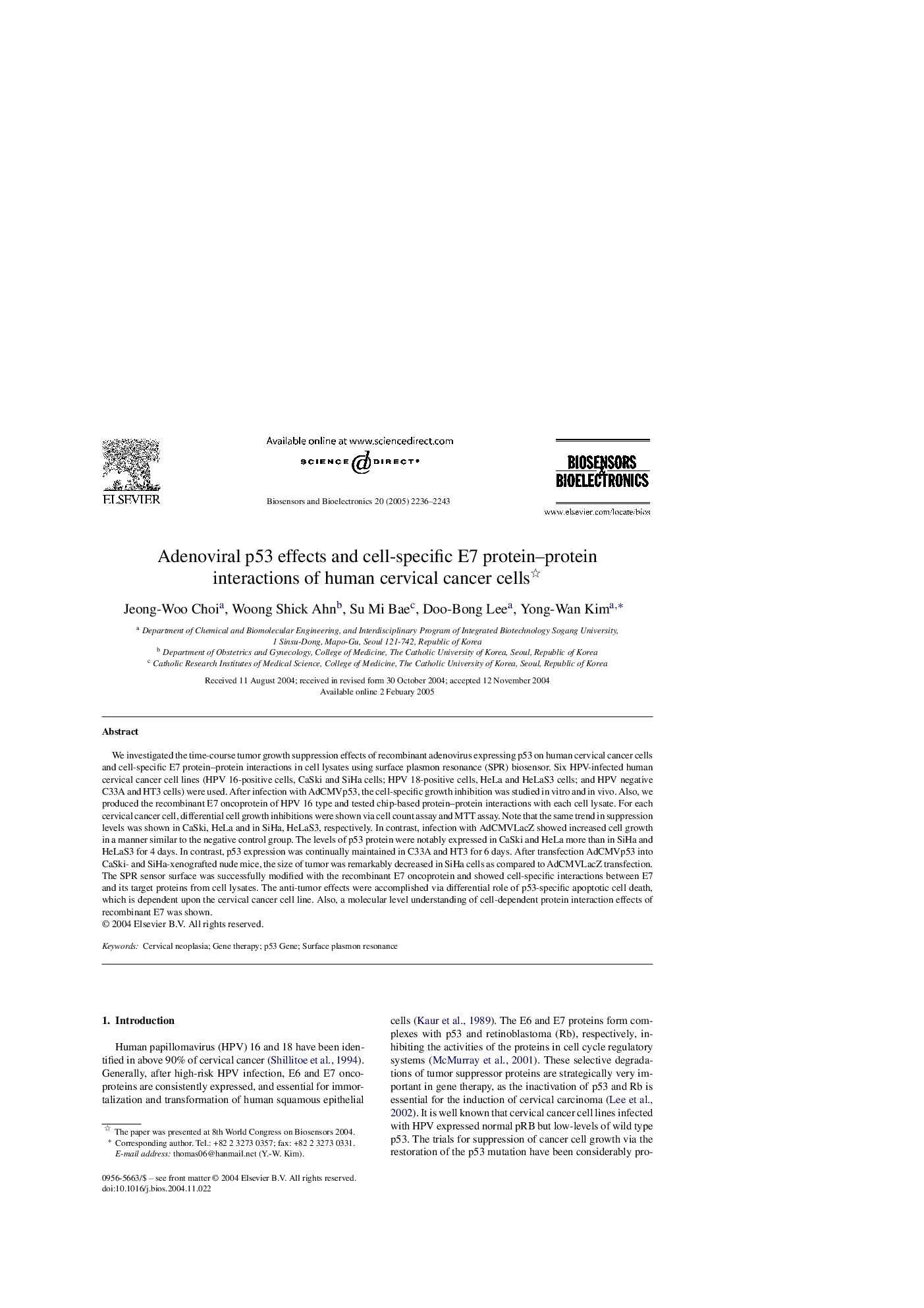| Article ID | Journal | Published Year | Pages | File Type |
|---|---|---|---|---|
| 870250 | Biosensors and Bioelectronics | 2005 | 8 Pages |
We investigated the time-course tumor growth suppression effects of recombinant adenovirus expressing p53 on human cervical cancer cells and cell-specific E7 protein–protein interactions in cell lysates using surface plasmon resonance (SPR) biosensor. Six HPV-infected human cervical cancer cell lines (HPV 16-positive cells, CaSki and SiHa cells; HPV 18-positive cells, HeLa and HeLaS3 cells; and HPV negative C33A and HT3 cells) were used. After infection with AdCMVp53, the cell-specific growth inhibition was studied in vitro and in vivo. Also, we produced the recombinant E7 oncoprotein of HPV 16 type and tested chip-based protein–protein interactions with each cell lysate. For each cervical cancer cell, differential cell growth inhibitions were shown via cell count assay and MTT assay. Note that the same trend in suppression levels was shown in CaSki, HeLa and in SiHa, HeLaS3, respectively. In contrast, infection with AdCMVLacZ showed increased cell growth in a manner similar to the negative control group. The levels of p53 protein were notably expressed in CaSki and HeLa more than in SiHa and HeLaS3 for 4 days. In contrast, p53 expression was continually maintained in C33A and HT3 for 6 days. After transfection AdCMVp53 into CaSki- and SiHa-xenografted nude mice, the size of tumor was remarkably decreased in SiHa cells as compared to AdCMVLacZ transfection. The SPR sensor surface was successfully modified with the recombinant E7 oncoprotein and showed cell-specific interactions between E7 and its target proteins from cell lysates. The anti-tumor effects were accomplished via differential role of p53-specific apoptotic cell death, which is dependent upon the cervical cancer cell line. Also, a molecular level understanding of cell-dependent protein interaction effects of recombinant E7 was shown.
